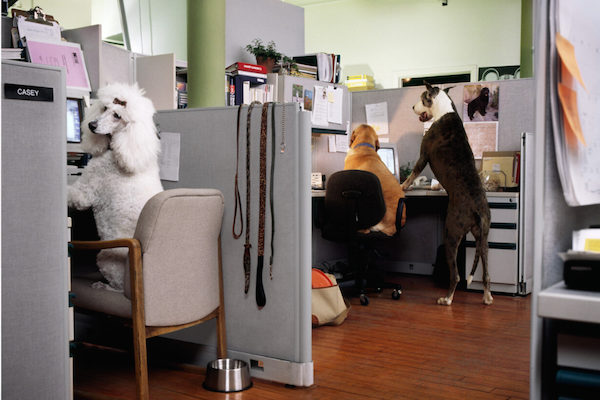March 28, 2021
Professors Thierry Devos and Mahzarin Banaji used images similar to these in their “American = White” studies. Study participants categorized celebrities as American or Foreign at rapid speed. Even when the Asian-Americans were n-th generation-U.S. citizens and the White-Europeans were not, an “American = White” implicit association emerged. Notably, this is not how study participants responded when given time to formulate an explicit, more deliberative response. Dr. Banaji often refers to our implicit associations as the thumbprints of the culture around us. Lately, I have been thinking a lot about that American = White fingerprint, in light of the spike in bias, hate, and violence against the Asian-American and Pacific Islander (AAPI, often referred to as Asian-American) communities during the pandemic.
10,000 subscribers and counting!
Evidence-based. Action-oriented. Zeitgeisty.
More joyful than you are expecting.
A free, monthly newsletter with tips on how to be the good-ish, growth-y person you mean to be.
No spam - ever. You have my word.
I Still Have My First Laptop From 1992→
/February 28, 2021
Given that I still have my Macintosh Powerbook 170, I giggled when I read this line in Adam Grant’s excellent new bestseller, Think Again. He writes, “We laugh at people who still use Windows 95, yet we still cling to opinions that we formed in 1995.” Well, at least I am no longer using that laptop. But ... it is still gathering dust and taking up space just a few feet from my desk because … nostalgia? (Query: does anyone have Marie Kondo’s cell?). The point in Think Again was that often our ideas need to be upgraded, just like our technology. As I read the book, my mind wandered to the Me Too Movement, founded by Tarana Burke. This movement helped many of us realize that we have allowed antiquated, wrongheaded ideas about sexual assault and rape to take up mental space and gather dust.
Things That Make You Say ... Hmmm→
/January 31, 2021
What if our pets ran the world? Would cuddling be the new 9-5? Would belly rubs be the standard office greeting? Would treats be the currency of exchange? These what-if “mental gymnastics” are known as thought experiments. Philosophers and physicists use thought experiments when a question cannot be answered through an actual experiment in the real world. Instead, thought experiments are “devices of the imagination” which tap into our intuitive ability to play out “make-believes” in our minds.
Puppies, Procrastination, and Possibilities→
/December 27, 2020
I procrastinated launching this newsletter for over a year. People I respect in the publishing world kept urging me to do it because book readers like to hear from authors between books. Newsletters allow for a more intimate author/reader relationship, they explained. Especially given the work I do on diversity, inclusion, racism, and unconscious biases, it was important to speak in and about today’s times. The work of being a teacher, author, and scholar is no longer solely about classrooms, books, and journal articles.
No Justice, No Joy?→
/November 29, 2020
My mother has long observed that I “think too much.” A friend once said that I can suck the joy out of any experience. My husband occasionally recalls “vacation Dolly” like she was a carefree stranger we once met far from home. None of them are wrong. No doubt, I am also a friendly, positive person who loves to laugh. It’s just that my default mode is intensity. I’ve always been like this, since I was this kid with the rockin’ hairdo who asked for file cabinets in school colors for her 12th birthday (still have them).
Meet Cocoa Bean, Our New Puppy!→
/October 25, 2020
In this month’s newsletter, I offer a simple, powerful tool for staying engaged in the tough issues and hard work related to being good-ish, even (especially!) when we feel overwhelmed. The tool I am sharing is a widely-used productivity method called the Pomodoro Method. I want to convince you that science shows that it is as effective as a puppy in lowering your blood pressure and more effective than a puppy at actually getting things done (note: I made up this puppy vs pomo study finding, but someone should prove me wrong).
I May Be Anti-Racist But I’m Still an Ableist→
/September 27, 2020
Many years ago, I began the hard work of confronting my own racism and sexism. That means fighting my natural responses of defensiveness, inaction, and shame — what I call the D-I-S Spiral — that come with a fixed mindset. I’d almost forgotten how difficult it is to begin the work of shifting to a growth mindset. Then, this summer, I re-discovered that fixed mindset. Why? I discovered I’m an ableist.
15 Tips for More Inclusive Virtual Meetings→
/August 30, 2020
Whether you are running the meeting or just participating in it, there are ways to make it better and more inclusive. And, believe it or not, in some ways, that’s easier to do on virtual platforms. So, while many of us are stuck on our screens, let’s make the most of it and use some of the unique features offered by virtual platforms for better inclusion.
5 Ways You Can Respond When People Post Racist Stuff→
/July 26, 2020
The internet is a dumpster fire. Forget about the bots, I’m talking about real people … people you work with, live near, went to school with, or are friends-of-friends with. Those people sometimes say awful things, ranging from unintentional to galling to hateful, what I call “UGH” comments. Whether you are hooked on social media, invested in election news, or working in a virtual world, these internet dumpster fires and their UGH sparks create toxic fumes you can not avoid. And if you are a member of a group prone to be targeted, dehumanized, or belittled on the internet — such as black people — the UGH sparks leave burns.
The 10% More Rule→
/June 28, 2020
Like you, I want to do the work for racial justice. Yet, I confess, doing the work sometimes feels like a lot (even though I study and teach others about race and bias!). How do we stick with it? To help us stick with it, I propose The 10% More Rule to guide us as we exit the frenetic month of June. Research on goal-setting emphasizes the importance of goals which are both challenging and attainable. I like 10% as a goal.








